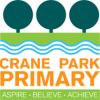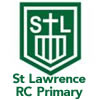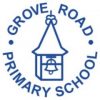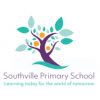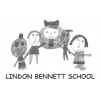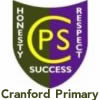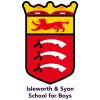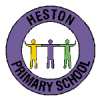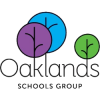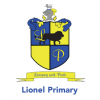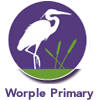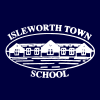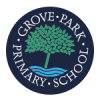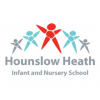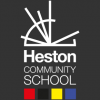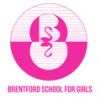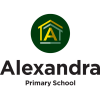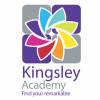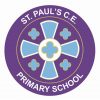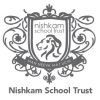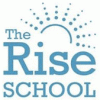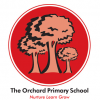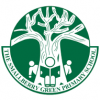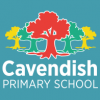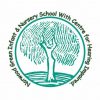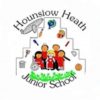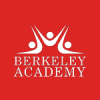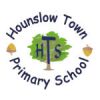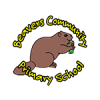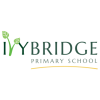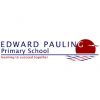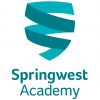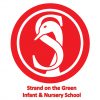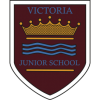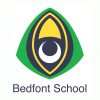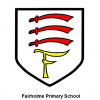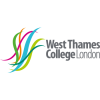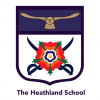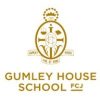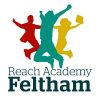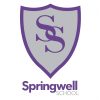Dear Subject Leader / Teacher / Teaching Assistant,
Welcome to the HEP Primary PSHE home page. On this page, you will find a range of resources and information to support you if you are: the subject leader for PSHE at your school and/or a classroom teacher/teaching assistant looking for advice and guidance to support your lesson planning.
The revised (September 2020) curriculum subjects will be:
- relationships education (primary)
- relationships and sex education (RSE) (secondary)
- health education (state-funded primary and secondary)
Read more about the consultation and new statutory guidance, and the latest update from HMG, below.
Subject Self-evaluation template
 Latest update from HMG re: Personal, Social, Health and Economic (PSHE) education
Latest update from HMG re: Personal, Social, Health and Economic (PSHE) education
Updated 11th February 2020 (on www.gov.uk)
Updated statutory guidance will come into effect from September 2020.
The revised curriculum subjects will be:
- relationships education (primary)
- relationships and sex education (RSE) (secondary)
- health education (state-funded primary and secondary)
Read more about the consultation and new statutory guidance.
Personal, social, health and economic (PSHE) education is an important and necessary part of all pupils’ education. All schools should teach PSHE, drawing on good practice, and this expectation is outlined in the introduction to the proposed new national curriculum.
PSHE is a non-statutory subject.
To allow teachers the flexibility to deliver high-quality PSHE, we consider it unnecessary to provide new standardised frameworks or programmes of study. PSHE can encompass many areas of study. Teachers are best placed to understand the needs of their pupils and do not need additional central prescription.
However, while we believe that it is for schools to tailor their local PSHE programme to reflect the needs of their pupils, we expect schools to use their PSHE education programme to equip pupils with a sound understanding of risk and with the knowledge and skills necessary to make safe and informed decisions.
Schools should seek to use PSHE education to build, where appropriate, on the statutory content already outlined in the national curriculum, the basic school curriculum and in statutory guidance on: drug education; financial education; sex and relationship education (SRE); and the importance of physical activity and diet for a healthy lifestyle.
Sex and relationship education
Sex and relationship education (SRE) is an important part of PSHE education and is statutory in maintained secondary schools.
When any school provides SRE, they must have regard to the Secretary of State’s guidance; this is a statutory duty. Academies do not have to provide SRE but must also have regard to the Secretary of State’s guidance when they do.
Advice for schools
We provided grant funding to the PSHE Association to advise schools in developing their own PSHE curriculums and improve the quality of teaching. The association focuses on signposting schools to resources and in expanding their Chartered Teacher of PSHE programme. We also asked the Association to promote the teaching of consent as part of SRE, in line with the 2000 statutory guidance.
Additional support
We want teachers to be free to address the topics most relevant for their pupils, drawing on good practice and advice from professional organisations. Schools are free to use the organisations and resources they choose and we encourage organisations to develop guidance for schools in the areas of their expertise.
We have asked the the PSHE Association to provide teachers with a range of case studies to inform their teaching. We recommend that schools use reputable professional organisations that will facilitate a broad and balanced approach.
 Association for Personal, Social, Health and Economic education
Association for Personal, Social, Health and Economic education
Organisation that supports PSHE in Primary Schools
https://www.pshe-association.org.uk/
(Membership for schools: £125 / annum - Individuals £50 / annum)
NB All HEP schools are registered members of the PSHE Association until the 17 July 2020, and as such ALL teachers have access to all of their resources.
The range of resources all HEP schools have access to include:
- PSHE Resources: Access a library of free, high quality teaching resources (including:
- Mental health and emotional wellbeing PowerPoint lesson plansCreating a PSHE education policy for your school
- The Sleep Factor — home learning lesson plans on healthy sleep habits
- Dental health — home learning lessons on keeping teeth healthy
- Writing your RSE policy: guidance from the PSHE Association
- Key Guidance: Keep up to date with briefings and guidance
- Exchange Ideas: Exchange ideas with a community of dedicated practitioners
- CPD training: Build on your skills with our CPD events and annual conference
- Impact: Add your voice to the campaign for high-quality PSHE education
- Get Support: Receive bespoke support from our subject experts via phone or email
A PSHE and Wellbeing Framework for Primary Schools
(published by the Health Education Partnership)
http://www.healtheducationpartnership.com/resources/HEP_Primary_PSHE_Framework.pdf
National Healthy Schools Programme (NHSP)
https://www.london.gov.uk/what-we-do/health/healthy-schools-london/awards/sites/default/files/PSHE%20Guidance.pdf
Mental Health in Schools Project (published by the Healthy London Partnership)
https://www.healthylondon.org/wp-content/uploads/2018/11/Mental-Health-Support-in-Schools-Mapping-Exercise-Report.pdf
Psychological First Aid: Supporting Children and Young People
https://www.futurelearn.com/courses/psychological-first-aid-for-children-and-young-people
Action Aid works towards the vision of a world without poverty, in which every person can exercise their right to a life of dignity.
Amnesty International promotes human rights worldwide.
Anti-Slavery International works for the elimination of all forms of slavery.
Association for Citizenship Teaching provides mutual support, knowledge and good practice, skills and resources for the teaching and learning of Citizenship in schools and colleges.
Association for Science Education's Global Dimension brings the global perspective to science education for 11-16 year olds.
Banana Link. This non-profit company provides a whole bunch of banana-related resources dedicated to improving the lot of banana exporting communities.
BBC PSHE & Citizenship - Resources for resources for teachers to engage 14-19 year olds in Personal, Social, Health, Economic and Citizenship education.
Book Aid - Book Aid International works with partner organisations in the South to improve access to books and information for the most disadvantaged. Includes resources for schools.
British Council exists to build lasting relationships between the UK and other countries, focussing on the educational and cultural.
British Red Cross produce teaching resources to help children aged 5 to 11 to look at the world from a humanitarian point of view.
CAFOD - Catholic Fund for Overseas Development's School Zone - includes information, worksheets and quizzes for primary and secondary schools.
Centre for Alternative Technology focuses on globally sustainable technologies; offers visits, courses and publications.
Christian Aid Aid agency of the churches in the UK and Ireland. Works wherever the need is greatest, irrespective of religion. Includes resources for teachers, youth leaders and children.
Climate Choices - Children's Voices - website from Practical Action, exploring the impact of our food choices on communities in developing countries. Aimed at teachers of years 5 and 6, the site features case studies, worksheets, videos, power point presentations, a carbon calculator and games.
Comic Relief offers free curriculum resources to support teaching on the issues behind Red Nose Day.
Fairtrade Foundation works to guarantee a better deal for small producers worldwide.
Find Your Feet - overseas development charity working in six developing countries: India, Malawi, Zambia, Swaziland, Lesotho, and South Africa.
Giving Nation Giving Nation is a countrywide campaign in the UK, aiming to demonstrate to young people how to change the world by giving. Includes lesson plans.
Global Campaign for Education promotes education as a basic human right, and mobilizes public pressure on governments and the international community to provide free, compulsory public basic education for all people.
Global Dimension for teachers (Department for International Development) - background information on the Global Citizenship curricula and a searchable database of teaching resources.
Islamic Relief - a UK based aid agency that seeks to alleviate the poverty and suffering of the world's poorest people.
JCORE - Jewish Council for Racial Equality - JCORE works to promote awareness and active involvement in the Jewish community to combat racism and build a just, harmonious multi-cultural society.
Link Community Development - Link Community Development is an international development organization working in the UK, Ghana, South Africa and Uganda. Its Schools Programme links schools in the UK with schools in these three African countries and its Global Teachers Programme offers teachers the opportunity to spend five weeks working in Southern schools over the summer.
Minority Rights Group International is an international non-governmental organisation working to secure rights for minorities and indigenous peoples worldwide.
Muslim Aid Muslim Aid is an international relief and development agency working to alleviate the suffering among the world's poorest and most needy communities regardless of race, gender, nationality or political opinion.
One World Week raises awareness of, and takes action on, global issues.
Oxfam learning and activity resources, aimed at teachers, to bring the issues Oxfam works on to life, both in the classroom and the wider community.
PeaceJam UK - inspires young people and gives them skills to become a new generation of peacemakers. It is part of an international youth movement led by Nobel Peace Prize winners.
Practical Action - case-studies and activities exploring the role of technology in poverty alleviation.
PTI - The Prince's Teaching Institute (PTI) is an independent educational charity created by the Prince of Wales.
Schools Councils UK - training and support for school and class councils.
Sight Savers International - works to restore sight to people in the world's poorest countries.
Survival International - supports tribal peoples.
Teachers in Development Education (TIDE) - a teachers network, based in Birmingham, supporting creative work aimed to enhancing young people's understanding of global dimensions, development perspectives and human rights principles. The site includes curriculum projects and a resource centre.
TES Teaching Resources - Free classroom resources, worksheets, lesson plans. primary resources and secondary resources uploaded and shared by teaching professionals.
Think Global - a national umbrella body aiming to support and promote the work of all those engaged in raising awareness and understanding of global and development issues in the UK.
Tourism Concern - raises awareness and concern for the impact of tourism on communities and the environment.
UNICEF's Child Friendly Schools - The organization's signature means to advocate for and promote quality education for every girl and boy.
Waste Watch - takes action on waste reduction, reuse, recycling.
WaterAid - provides safe domestic water, sanitation and hygiene education to the world's poorest people.
World Bank's Development Education Programme - includes sustainable development learning resources.
Young Citizens provides support for Citizenship in primary and secondary schools.
If you have used or know of any good resources to share with other subject leaders or teachers in Hounslow, please email them to Nikola Standing – n.standing@hounsloweducationpartnership.co.uk






